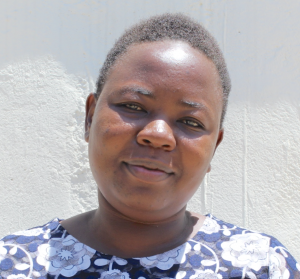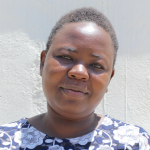Mukhungula Primary School's 630 students spend so much of their time ferrying water. They bring full jerrycans with them to school each morning. Then they are sent back out again during lunchtime. Sometimes, if the water runs out, they go out again once more before the end of the school day.
The sources from which they gather water are questionable. When they bring water from home, it is sometimes sourced from surface water, which is unfiltered and contaminated. Not to mention that it is difficult for children to carry their school books as well as a full twenty-liter container of water (approximately 44 lbs).
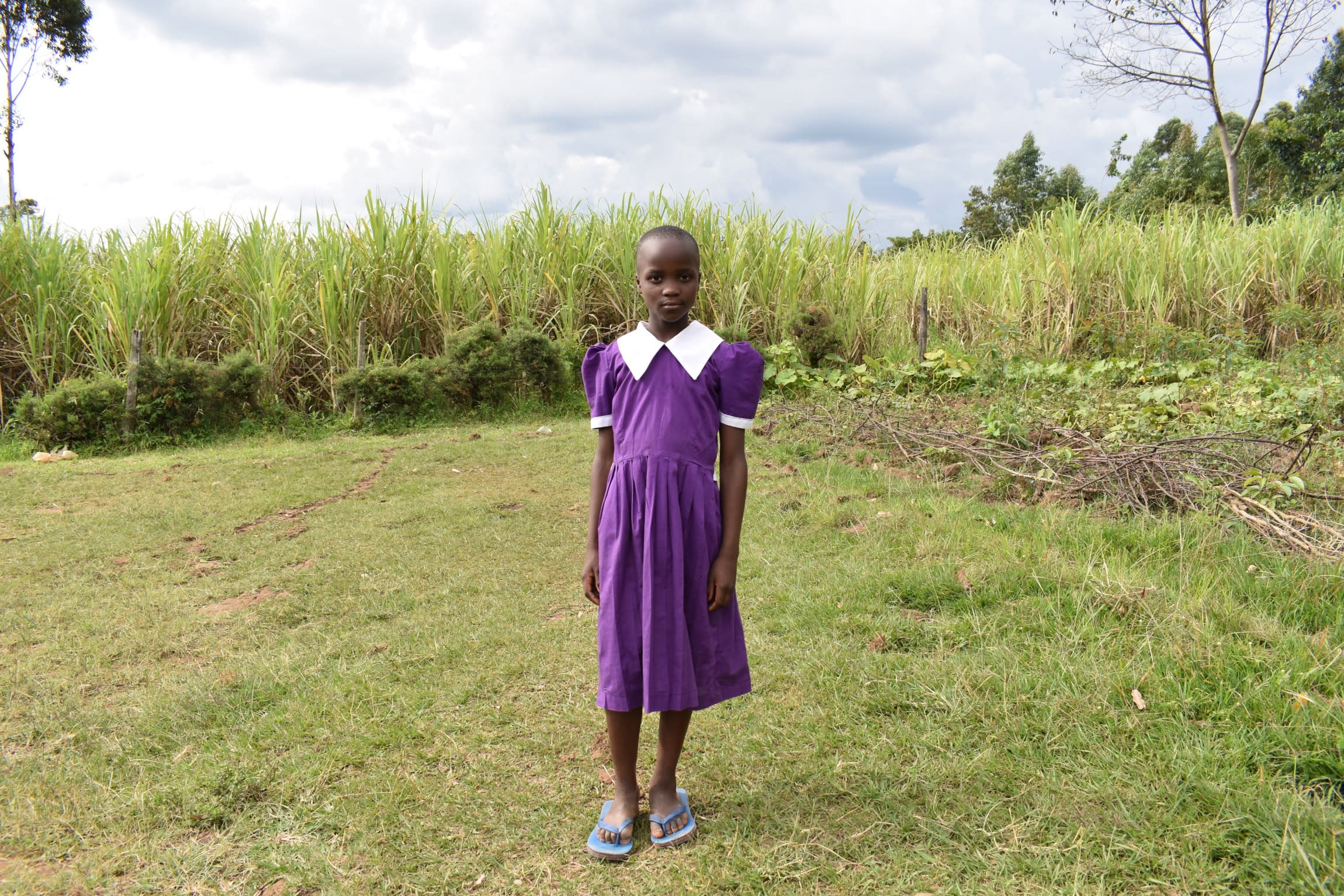
"Coming with water from home every day is tiresome," said 13-year-old Sheila M. (in the above photo).
When the water from home inevitably disappears as the school's staff and students clean, cook, drink, and use the latrine, students trek a formidable distance to a partially protected spring. Due to seasonality and disrepair, this spring sometimes fails to provide water.
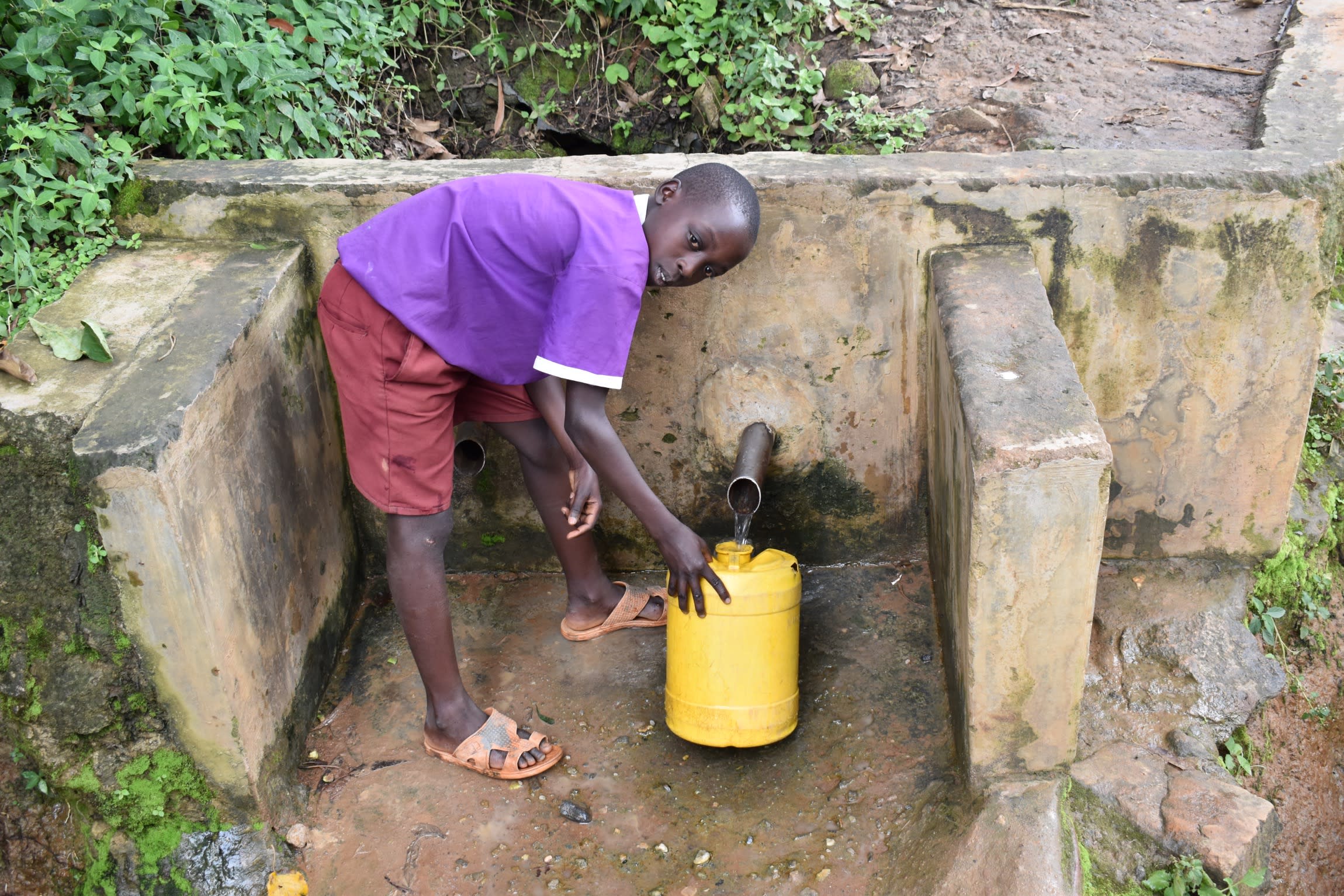
When this happens, they go to a cloudy-watered river and submerge their containers in the opaque water. Then they hike back to school, likely having missed some of the classes they need to pass their exams.
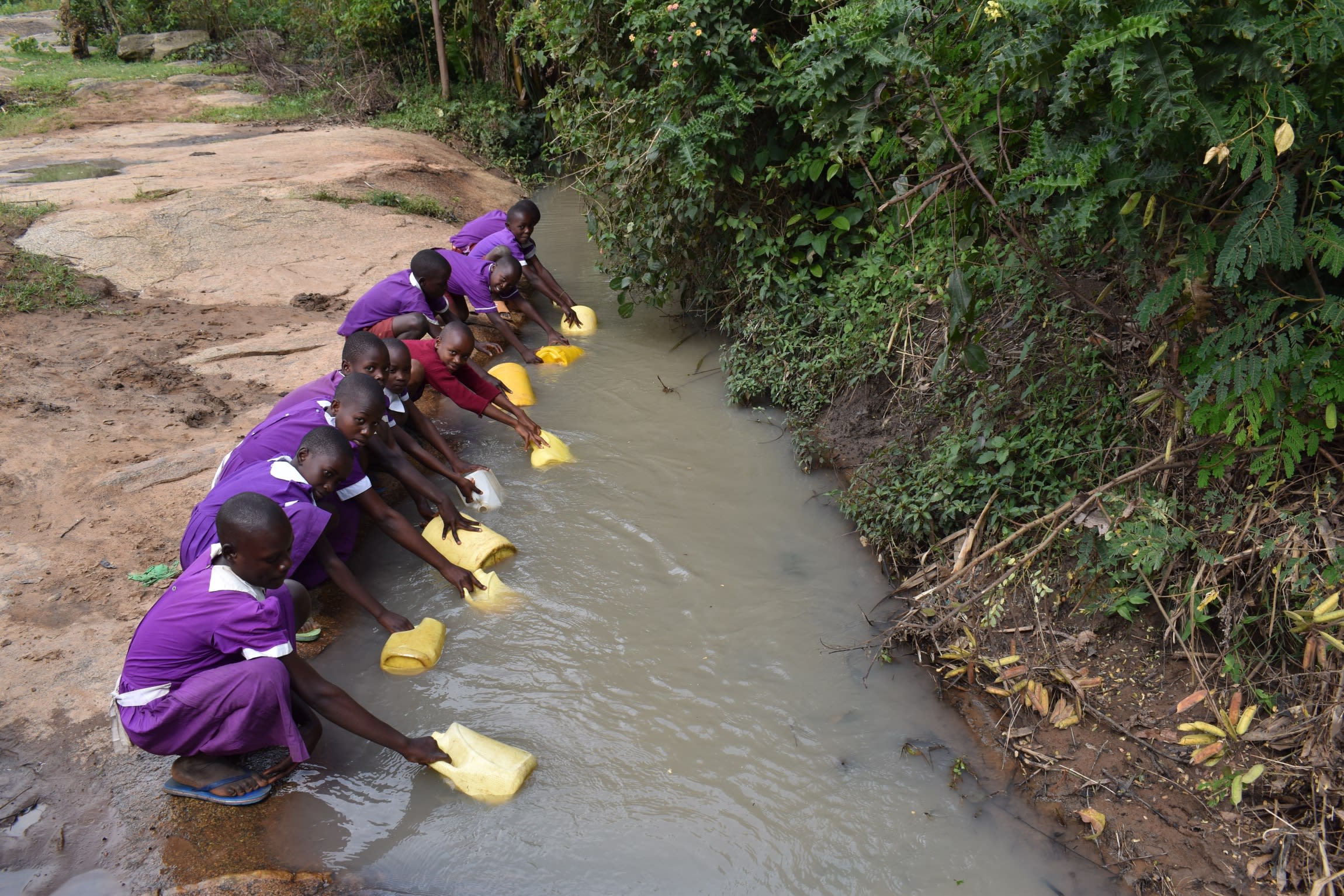
"Sometimes we are forced to skip lessons just because we have to go fetch water," Sheila explained. "This has affected my performance negatively. I am not happy at all."
Another thing that negatively impacts school performance is absenteeism, which is caused by drinking unsafe water from the only sources available. Cases of typhoid and cholera are common, with one teacher having been admitted to the hospital recently for typhoid.
"[I] have been in this school for some time now and clean and safe water has been a big challenge," said Senior Teacher Peter Aswani (in the photo below teaching).
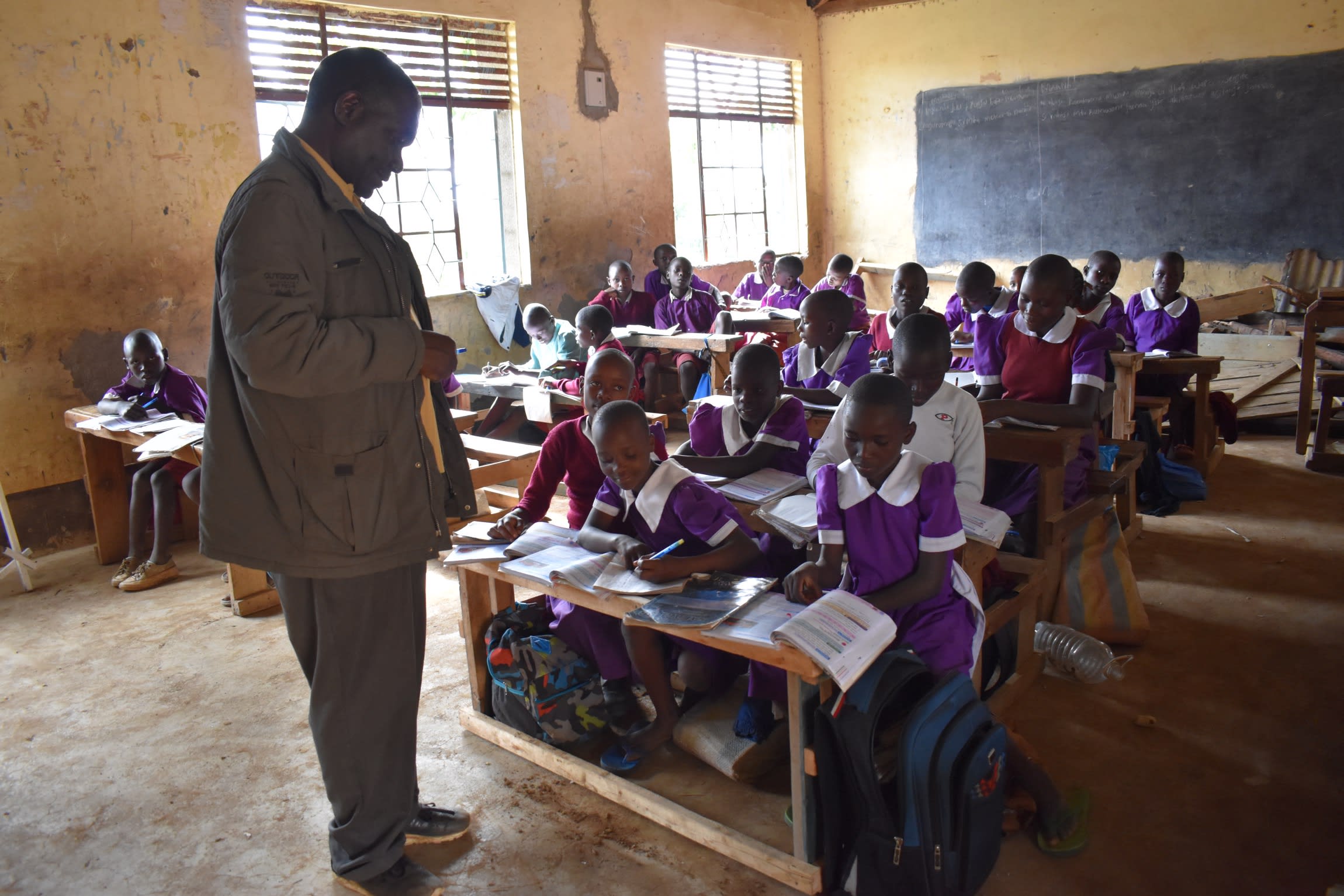
"When I joined the school, I used to have stomachaches every now and then without knowing the cause, so one day I decided to go for [a] full check-up, where I was told that [I] have been drinking dirty water, which was the cause of my persistent stomachache."
A reliable source of water will lessen the physical and mental burdens on Mukhungula's students. It will free up time and energy they can devote to study or play and allow them to live happier, healthier lives.
What We Can Do:
New Well
We conducted a hydrogeological survey at this school and the results indicated the water table beneath it is an ideal candidate for a borehole well. Due to a borehole well's unique ability to tap into a safe, year-round water column, it will be poised to serve all of the water needs for this school's large population, even through the dry months.
The school will help collect the needed construction materials such as sand, rocks, and water for mixing cement. They will also provide housing and meals for the work team, in addition to providing local laborers. We will complement their materials by providing an expert team of artisans and drilling professionals, tools, hardware, and the hand-pump. Once finished, water from the well will then be used by the school’s students and staff for drinking, handwashing, cooking, cleaning, and much more.
Handwashing Stations
There is currently nowhere for students to wash their hands after using the latrines or before eating lunch, let alone the water to do so.
The student health club will oversee the two new handwashing stations we will provide, and make sure they are kept clean and in working condition. The club leaders will fill the handwashing stations with water daily and make sure they are always supplied with a cleaning agent such as soap or ash.
VIP Latrines
We will construct two triple-door latrine blocks using local materials that the school will help gather. Three doors will serve the girls and three doors will serve the boys. All of these new latrines will have cement floors that are designed to be easy to use and to clean. And with a rain tank right on school property, there should be enough water to keep them clean.
Training on Health, Hygiene, COVID-19, and More
We will hold a one-day intensive training session with students, teachers, and parents. This training will cover a wide range of topics including COVID-19 symptoms, transmission routes, and prevention; personal and environmental hygiene; and the operation and maintenance of the rain tank, latrines, and handwashing stations. There will be a special emphasis on handwashing.
Our team of facilitators will use a variety of methods to train, including participatory hygiene and sanitation transformation, and asset-based community development. We will initiate a student health club, which will prepare students to lead other pupils into healthy habits at school and at home. We will also lead lectures, group discussions, and provide illustrative handouts to teach health topics and ways to promote good hygiene practices within the school including handwashing and water treatment. We will then conduct a series of follow-up trainings before transitioning to our regularly scheduled support visits throughout the year.
We and the school strongly believe that all of these components will work together to improve standards at this school, which will help lead to better student academic performance and will help unlock the opportunity for these students to live better, healthier lives.

 Borehole Well and Hand Pump
Borehole Well and Hand Pump
 Rehabilitation Project
Rehabilitation Project












